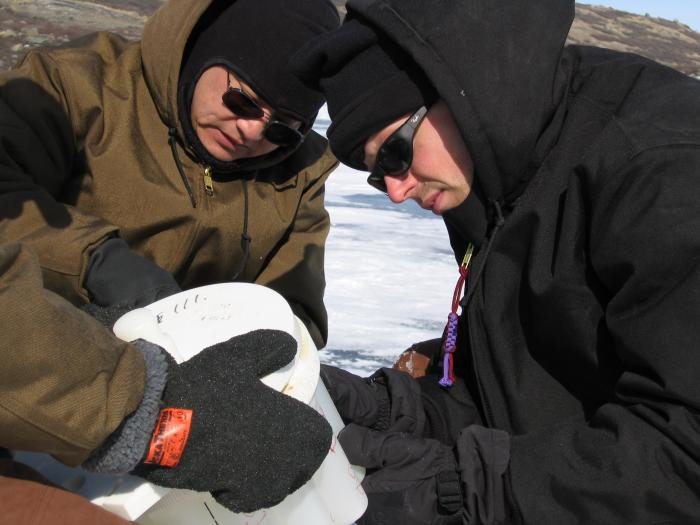Cold Snap Drove Vikings From Greenland, Study Suggests

Get the world’s most fascinating discoveries delivered straight to your inbox.
You are now subscribed
Your newsletter sign-up was successful
Want to add more newsletters?

Delivered Daily
Daily Newsletter
Sign up for the latest discoveries, groundbreaking research and fascinating breakthroughs that impact you and the wider world direct to your inbox.

Once a week
Life's Little Mysteries
Feed your curiosity with an exclusive mystery every week, solved with science and delivered direct to your inbox before it's seen anywhere else.

Once a week
How It Works
Sign up to our free science & technology newsletter for your weekly fix of fascinating articles, quick quizzes, amazing images, and more

Delivered daily
Space.com Newsletter
Breaking space news, the latest updates on rocket launches, skywatching events and more!

Once a month
Watch This Space
Sign up to our monthly entertainment newsletter to keep up with all our coverage of the latest sci-fi and space movies, tv shows, games and books.

Once a week
Night Sky This Week
Discover this week's must-see night sky events, moon phases, and stunning astrophotos. Sign up for our skywatching newsletter and explore the universe with us!
Join the club
Get full access to premium articles, exclusive features and a growing list of member rewards.
Ice cores from Greenland's lakes show that a cold snap — called the "Little Ice Age" — preceded the departure of the Norse Vikings from their settlements. The lowered temperatures are the most likely explanation of their rapid departure from the area.
“The record shows how quickly temperature changed in the region and by how much," study researcher Yongsong Huang, of Brown University, said in a statement. “It is interesting to consider how rapid climate change may have impacted past societies, particularly in light of the rapid changes taking place today.”
They recreated the climate during a span of 5,600 years, through the mid-1300s, using data from lakes near the Norse settlement in western Greenland. The ice cores reflect air temperatures from when the ice was deposited. The researchers determined that the local temperatures plunged several degrees over the span of a few decades, a cold snap called the "Little Ice Age." [Records Melt Away on Greenland Ice Sheet]
"This is the first quantitative temperature record from the area they were living in," study researcher William D'Andrea, now at the University of Massachusetts–Amherst, said in a statement. "So we can say there is a definite cooling trend in the region right before the Norse disappear."
The cooling started around the year 1100, dropping 7 degrees Fahrenheit (4 degrees Celsius) in 80 years. The change could have shortened the crop growing season and increased sea-ice levels, making trade and sailing difficult.
"Suddenly year after year, you go into this cooling trend, and the summers are getting shorter and colder and you can't make as much hay. You can imagine how that particular lifestyle may not be able to make it," D'Andrea said.
The colder weather might have ousted the Norse from their settlements, which were set up in the 980s. Their disappearance could also be due to other factors, including their dependence on trade, combative relationships with their neighbors and sedentary lifestyle, the researchers said.
Get the world’s most fascinating discoveries delivered straight to your inbox.
The study was published on May 31 in the journal Proceedings of the National Academy of Sciences.
You can follow LiveScience staff writer Jennifer Welsh on Twitter @microbelover. Follow LiveScience for the latest in science news and discoveries on Twitter @livescience and on Facebook.
Jennifer Welsh is a Connecticut-based science writer and editor and a regular contributor to Live Science. She also has several years of bench work in cancer research and anti-viral drug discovery under her belt. She has previously written for Science News, VerywellHealth, The Scientist, Discover Magazine, WIRED Science, and Business Insider.
 Live Science Plus
Live Science Plus











